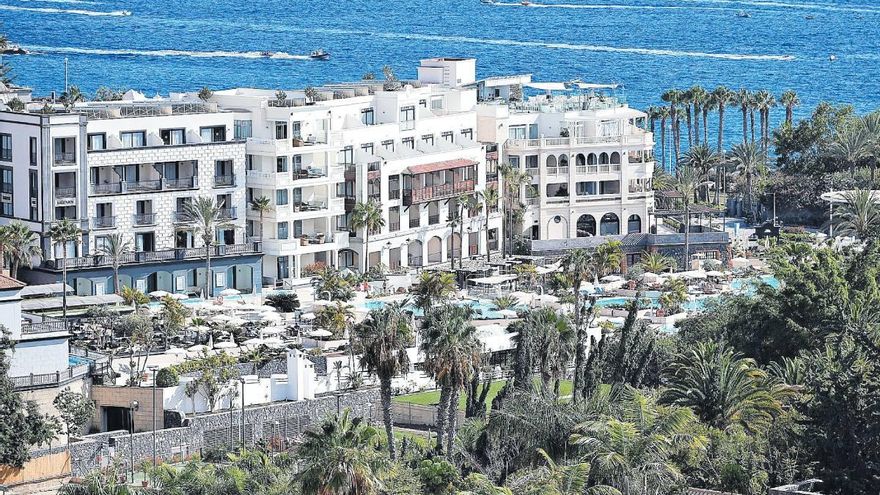Canary Islands smash hotel investment records
The Canary Islands hotel market is demonstrating its powerful allure for investors, breaking records with just two major transactions. This investment boom is fueled by the incredible tourist success the islands are currently enjoying.
Major deals drive unprecedented investment surge
Two landmark operations have catapulted regional investment figures: Spring Hotels’ acquisition of Mare Nostrum Resort in Arona, south Tenerife, for €430 million, and the Lopesan group’s planned purchase of the iconic Bahía del Duque hotel in Adeje (just next to Arona) for €320 million. With the Lopesan deal pending finalization, these two transactions alone total a staggering €750 million. When combined with the approximately €250 million in acquisitions from the first half of the year, total investment in the sector is racing towards the €1 billion mark—and the year isn’t even over. This figure already far surpasses the entire 2024 total of €664 million.
A decade of investment trends
Looking back over the last nine years, hotel investment in the Islands has only exceeded €1 billion twice: in 2023 (€1.175 billion) and in the record-breaking year of 2018 (€1.684 billion). All indicators suggest that 2024 will become the second-best year for investment in the last decade. This consistent performance solidifies the Canaries’ leadership in Spanish hotel investment, proving it remains a safe and attractive destination. The post-pandemic era has seen visitor numbers, tourist spending, and airline capacity shatter record after record, prompting major corporations and investment funds to place their clear bets on the islands.
The investment timeline from 2016 reveals three peak years: 2017 (€991 million), 2018 (€1.684 billion), and 2023 (€1.175 billion). The tourism standstill caused by COVID-19 caused investment to plummet to a meager €140 million in 2020. It saw a notable recovery to €633 million in 2021, only to fall abruptly again to €175 million in 2022. Since 2023, hotel investment has repositioned the Canaries at the forefront for capital moving within the sector, a trend that is being spectacularly consolidated this year with these two mega-deals.
Record-breaking transactions and strategic moves
The recent operations are profoundly significant. The purchase of the Mare Nostrum Resort complex is a record-breaking acquisition, hailed as the largest sum ever paid in the history of the Spanish hotel sector. The €430 million price tag alone represents 38% of all investment last year, marking a giant leap in growth for Spring Hotels. The acquired complex includes three establishments, two of which are five-star properties.
In a surprising twist, it was revealed that Spring Hotels outbid the group belonging to Amancio Ortega, Spain’s wealthiest individual, who has made several strategic moves in the hotel sector since the pandemic. However, the star operation emerged just days later, not only for its financial weight but also for its strategic importance: the landing on Tenerife of the Gran Canaria-born Lopesan group. Their intention to acquire the emblematic Bahía del Duque hotel for €320 million marks a major expansion. This move extends Lopesan’s presence in the archipelago, which until now was focused on Gran Canaria and Fuerteventura.
This actually represents the Canary company’s second attempt to establish itself on Tenerife; it was also interested in acquiring the Mare Nostrum Resort but considered the asking price excessive, ultimately leaving Spring Hotels to win the day.
Leading the spanish tourism market
With these operations, the Canary Islands firmly cement their leadership compared to other Spanish tourist communities like the Balearic Islands, Andalusia, or Catalonia. In fact, even before the Spring and Lopesan movements, the Archipelago was capturing 20% of all capital injected into Spain’s accommodation sector.
Until a few years ago, investor interest was more focused on the Balearics, but the Canaries have been gaining formidable strength. The islands are not only the preferred winter destination for key international markets, but the summer season is now also posting record-breaking numbers never seen before. As a clear example, recent data from Frontur reflected the best July in the Islands’ tourist history, with 1.2 million international visitors, highlighting the particularly strong relevance of the British market.

